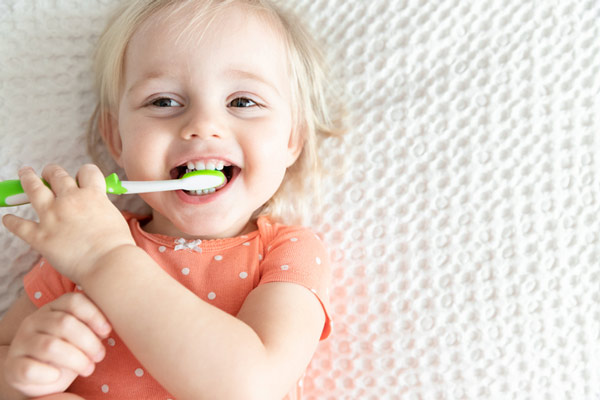Baby Teeth Matter There is a misconception that is all too common that has to do with baby teeth. Too many people think that baby teeth are not important because they are just going to fall out anyway. That could not be further from the truth. Here at NC Pediatric Dentistry, we want you to know that baby teeth do matter. Here is why. There is a misconception that is all too common that has to do with baby teeth. Too many people think that baby teeth are not important because they are just going to fall out anyway. That could not be further from the truth. Here at NC Pediatric Dentistry, we want you to know that baby teeth do matter. Here is why.Why Your Child's Baby Teeth MatterYour child's baby, or primary, teeth are extremely important. They may not last a lifetime, but proper care is still essential. Your child will learn how to take care of teeth because of his or her baby teeth. Good dental care needs to be established at an early age because that way it will become a habit. Baby teeth will also help your child learn how to chew properly. You may not think too much about chewing, and that is because it is a habit for you. Your child needs to be able to develop similar chewing habits, and primary teeth are an important part of that. When your child realizes that nice teeth are a vital part of a smile, he or she will want to have good teeth to show off. This will lead to better self-confidence. Your child's baby teeth will hold the places in the jaw that will eventually be taken over by adult teeth. Since adult teeth come in slowly, the baby teeth are a vital placeholder so that the adult teeth will be spaced properly in the jaw. You need to do your part in teaching your child how important his or her baby teeth are. You should start by brushing. Allow your child to see you brush from an early age. Children want to mimic their parents, so if your child sees you brush each day, he or she will want to do the same. Teaching Your Child How To Care For Their TeethWhen a child first starts to brush, the technique is not all that significant. You are instead trying to develop the habit, and let your child discover how good it feels to have a clean mouth. Consider adding a chart in the bathroom so that your child can receive a reward for remembering to brush. A gold star each day on a calendar can be a great incentive for a child. Another thing that you need to do for your child's baby teeth is to make regular visits to our office. It is important that you show your children that the dentist is a friend. Do not ever infer that there could be pain; make it a happy experience. Baby teeth may be temporary, but that does not mean that they do not matter. They should be the start of a lifetime of good oral habits. Here at NC Pediatric Dentistry, we want to help make sure that your child's baby teeth are healthy. Call for an appointment at our locations. You have the power to show your child how much baby teeth, and later adult teeth, matter. We will do our part, but it all starts at home. |
A BETTER DENTAL EXPERIENCENC’s Premier network of pediatric dental practices is committed to delivering a full suite of trusted, comfortable, and informative oral care services. With kid-centric spaces and experiences, we teach kids how to care for their smiles. |